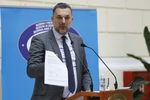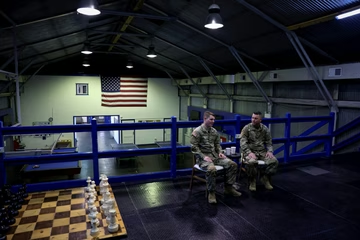
Bosnia is losing billions because of decisions waiting to be adopted by the Parliament which is unnecessarily being blocked because of unrelated bickering over forming the Council of Ministers, economic expert Svetlana Cenic told N1 on Wednesday.
“There are so many laws and agreements in waiting, it represents crippling of one’s own economy,” Cenic said, adding that those are messages coming from both of Bosnia’s semi-autonomous entities - the Federation (FBiH) and the Republika Srpska (RS).
“According to a ministry estimate - what we are waiting for is worth 100 billion (Bosnian Marks),” she said, adding that the amount is even higher when talking about the direct economic damage the wait causes.
The key issue causing Bosnia’s political crisis which has crippled the country’s institutions and any progress or development is that the government - the Council of Ministers - is not formed since the 2018 election over disagreements regarding the country’s path toward NATO membership.
The winning parties disagree over whether to send a document, the Annual National Programme (ANP), to NATO. The country took the obligation over years ago through a consensus between the representatives of all three major ethnic groups. However, the Serb ruling Alliance of Independent Social Democrats (SNSD) is against sending it.
Bosnia’s three Presidency members must all approve the new Council of Ministers.The Bosniak and Croat members insist on sending the ANP. They refuse to approve the naming of the new Council of Ministers Chairman, who is supposed to come from the SNSD, until the document is sent.
“You can do whatever you want in the Council of Ministers, but the Parliament must always work. Why would the entire state be blackmailed or held hostage because someone wants a Council of Ministers, while someone else wants the MAP (NATO Membership Action Plan). It is terrible,” Cenic said.
“The only solution I see is that the Parliament does its job, and the negotiations over the Council of Ministers can continue. The Parliament can make its decisions, we want to know who is in favour of what and who opposes what. It will be clear who is obstructing it,” she said.
Cenic mentioned the issue of Bosnia’s NATO path as well.
“Why did someone sign something which they now cannot meet, while the other side is insisting on it,” she asked, referring to the Serb ruling party signing off on Bosnia’s obligations toward NATO back in 2009.
“I am not a fan of any military alliance, but I am asking - how much does it cost not being a member of NATO or the EU, if all surrounding countries are members. That is terrible for a country which is not within an alliance or has no special arrangements,” she said.
Parliamentarians should clear up what the problem is and why they are not doing their jobs, Cenic said.
“If they are already costing 2,800 BAM per minute - then somebody should take a minute and clear up what is problematic,” she said.
The economy expert said that there are some people in Bosnian politics who “have never done anything serious in their lives.”For such people, the situation is perfect, she said - “you don’t have to do anything, but you get your salary.”
Kakvo je tvoje mišljenje o ovome?
Učestvuj u diskusiji ili pročitaj komentare





 Srbija
Srbija
 Hrvatska
Hrvatska
 Slovenija
Slovenija



























































